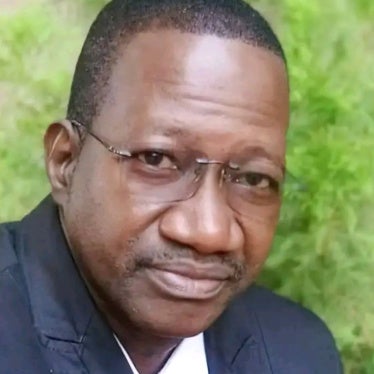(Johannesburg) South Africa’s parliament vote to pass the controversial Protection of State Information Bill is a blow to freedom of expression and democratic accountability, Human Rights Watch said today. Parliament should have heeded the calls of South African civil society, representatives of the media, and political opposition and refrained from holding the vote.
Ever since the bill was introduced in March 2010, it has been subject to serious criticism as being inconsistent with South Africa’s constitution and human rights obligations. The bill has been amended over the past 18 months, but the version endorsed by the Parliament still omits a public interest defense. The absence of this clause means that journalists, whistleblowers and others could be imprisoned for up to 25 years for leaking or sharing information deemed classified by the government and which exposes corruption, mismanagement or malfeasance even in the face of a compelling public interest.
“The bill as passed is still in need of serious revision,” said Daniel Bekele, Africa director at Human Rights Watch. “If implemented, it will unacceptably curtail both the right to access information and freedom of expression, which are the foundation of a democratic society.”
In 2010, Human Rights Watch joined South African civil society in condemning the first draft of the bill, which among other things contained an overly broad definition of national interest, imposed draconian punitive measures against those who publish classified information, and lacked a public interest defense.
On September 20,in response to public demonstrations against the bill, the African National Congress, South Africa’s ruling party, stated that "Further consultations and debates should … continue on the bill with a view to further enhancing the quality of the current draft."
However, in the third week of November, the government appeared to reverse this decision and announced it was seeking to push the bill to a vote before Parliament.
“The manner in which the government pushed this bill through Parliament, instead of proceeding with consultations as promised, as well as the secrecy embedded in this legislation, send very worrying signs about the government’s commitment to transparency,” Bekele said.
Human Rights Watch believes that a public interest defense in the bill is necessary to ensure South Africa’s compliance with international human rights law and the Johannesburg Principles on National Security, which stipulate, among other things, that “public interest in knowing the information” should be a primary consideration in any regulation of state information.
The South African parliament could have postponed a vote on the bill to revise the legislation and bring it in line with the country’s human rights obligations and constitutionally enshrined rights of freedom of expression and access to information. International law does allow for limitation on access to information for legitimate state interests, such as national security. However, such limitation must be narrowly defined, deemed “necessary” in a democratic society, and proportionate to the actual threat to the legitimate state interest. While there may be extraordinary situations where the danger to national security could outweigh the public’s interest in receiving official information, both international legal interpretation and the jurisprudence of democratic societies tend to view such situations restrictively, in view of the chilling effect censorship and punishment have on freedom of speech.







